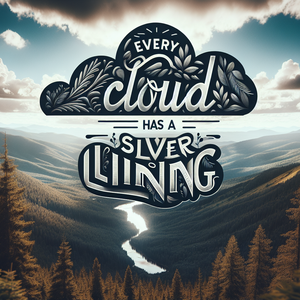The Tenth Book: A Milestone or a Starting Point?

Reaching the tenth book is a significant achievement in an author’s career. For many, it represents a decade or more of dedication, creativity, and resilience. This milestone often brings a mix of emotions: pride and accomplishment intermingled with anxiety about future expectations. Authors frequently grapple with questions such as: "Will I continue to meet my readers' expectations?" or "How can I remain relevant in an ever-changing literary market?" Consider the case of bestselling author Jane Doe, who, after the release of her tenth book, experienced a wave of both excitement and apprehension. In interviews, Doe expressed a desire to push boundaries and explore new themes, yet she acknowledged the pressure that accompanies a successful track record. This internal conflict is common among authors at this stage, where the weight of previous successes can motivate but also hinder the creative process. The psychological burden of expectations can lead to a crisis of confidence, making it crucial for authors to navigate this period with care and introspection.
Marketing Significance: Positioning the Tenth Book
From a marketing perspective, the tenth book can be a powerful tool to re-engage existing readers while attracting new ones. Publishers often leverage this milestone to create buzz around the release. Special promotions, anniversary editions, and media appearances can elevate the book’s visibility, allowing authors to capitalize on their established brand. When author John Smith launched his tenth book, he partnered with local bookstores for exclusive events, including readings and signings. This not only celebrated his milestone but also fostered a deeper connection with his readership. Smith’s strategic marketing choices illustrated how the tenth book can serve as a pivotal moment in an author’s career, transforming their established presence into a platform for renewed engagement. Such marketing strategies can rejuvenate an author’s brand, reminding readers of their journey while inviting them to participate in the next phase of their literary evolution.
A Launchpad for Future Works
While the tenth book is often viewed as a capstone, it can also be a launching pad for new directions in an author’s career. Many authors use this milestone as an opportunity to experiment with different genres, styles, or formats. This reinvention can reinvigorate their writing and keep their audience engaged. Take the transformation of author Emily Green, who, after her tenth book, decided to delve into the realm of young adult fiction—a departure from her previous adult contemporary novels. This shift not only broadened her readership but also allowed her to explore themes of identity and resilience in a fresh context. Such examples illustrate how the tenth book can empower authors to take risks and expand their creative horizons. By embracing new challenges, authors can keep their work dynamic and relevant, ensuring that their literary voice continues to resonate with readers.
The tenth book in an author’s career is much more than just another publication; it represents a significant milestone that encapsulates their journey thus far while paving the way for future explorations. The psychological implications of this achievement can be daunting, yet they offer a unique opportunity for growth and transformation. From a marketing standpoint, it provides a chance to re-engage with readers and attract new audiences. Ultimately, this pivotal moment can serve as both a capstone and a launching pad, setting the stage for the next chapter in an author’s literary journey.
Literary Agent
Literary agencies, publishing houses (e.g., WME, Curtis Brown)
Core Responsibilities
Identify and nurture new writing talent, negotiating book deals between authors and publishers.
Provide career guidance to authors, helping them refine their pitches, manuscripts, and marketing strategies.
Required Skills
Strong understanding of the publishing industry and market trends.
Excellent negotiation and communication skills.
Book Marketing Specialist
Publishing companies, marketing agencies, authors' publicists
Core Responsibilities
Develop and implement marketing strategies that enhance a book's visibility and sales, especially around key milestones like the tenth book release.
Coordinate promotional events, social media campaigns, and author appearances to engage with readers.
Required Skills
Proficiency in digital marketing tools and social media platforms.
Experience in content creation and public relations.
Editorial Director
Major publishing houses (e.g., Penguin Random House, HarperCollins)
Core Responsibilities
Oversee the editorial team, guiding the selection and publication of manuscripts, including those by established authors reaching milestones.
Ensure that the final product aligns with the publisher's vision and market demands.
Required Skills
Extensive experience in editing and a strong understanding of narrative structure and literary trends.
Leadership and team management capabilities.
Author Brand Consultant
Consulting firms, independent agencies, freelance
Core Responsibilities
Assist authors in developing their personal brand and marketing strategy, particularly when launching significant publications like their tenth book.
Provide insights on audience engagement, positioning, and multimedia storytelling.
Required Skills
Expertise in brand development and marketing, especially within the literary field.
Strong analytical skills to assess market trends and reader demographics.
Creative Writing Instructor
Universities, community colleges, writing centers, and online platforms
Core Responsibilities
Teach writing workshops that help authors refine their craft and explore new genres and styles, particularly during transitional phases in their careers.
Offer mentorship and feedback to aspiring writers, guiding them through the publishing process.
Required Skills
A strong portfolio of published work and experience in teaching or mentoring.
Knowledge of various writing styles and literary forms.


